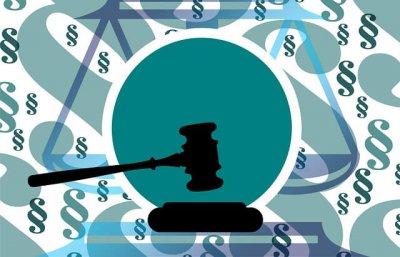The civil action lawsuit against Derek Chauvin (which has received less media attention than his criminal trial) has come to a conclusion. As a disgraced former police officer from Minnesota, Chauvin is infamously known for holding George Floyd on the ground with his knee on his neck until death. After being found guilty in his criminal trial, he then faced a federal civil rights trial to which he pleaded guilty.
“Chauvin pleaded guilty Dec. 15 to violating Floyd’s civil rights, admitting for the first time that he kept his knee on Floyd’s neck — even after he became unresponsive — resulting in the Black man’s death on May 25, 2020. The white former officer admitted he willfully deprived Floyd of his right to be free from unreasonable seizure, including unreasonable force by a police officer.” -Associated Press
Although Chauvin pleaded guilty in December 2021, the presiding Judge, U.S. District Judge Paul Magnuson declined to accept the plea agreement until the presentence investigation. A sentencing date has not been been scheduled.
SmartRules offers task-based guides for drafting legal documents and pleadings including settlement conference statements which are an integral part of resolving lawsuits. Additional related guides available on SmartRules include filing instructions, complaints or petitions, and answering a complaint.
Become a SmartRules member and you will never miss a timing deadline for filing complaints, answers, or motions – our Editorial Team monitors courts around the country on a 24/7 basis. Our guides reflect the latest version of any code, rule, or statute in our coverage area. Stop wading through multiple sources for research – SmartRules does that for you so that you can increase your billable time and your time off.
Sources
The Minnesota judge overseeing Derek Chauvin’s civil rights case accepts plea deal
Judge overseeing Derek Chauvin civil rights case accepts plea deal
Previously published by SmartRules April 2021
As the country (and indeed the world) awaits the jury’s verdict in the Derek Chauvin trial in Minnesota, another critical possibility looms – the possibility that the non-sequestered jury will be influenced by the potential consequences (unlawful protests) of a not-guilty verdict.
Chauvin, a police officer who is being prosecuted for the death of George Floyd during an arrest, faces 3 charges: second-degree unintentional murder, third-degree murder and second-degree manslaughter.
The 12 person jury has the option of convicting him on all three charges, or just two charges, or a single charge. Or, none at all.
According to the AP wire, “the case comes down to two key questions – whether Chauvin caused Floyd’s death and whether his actions were reasonable – and each charge requires a different element of proof as to Chauvin’s state of mind.”
Chauvin’s defense team has already requested, and been denied, a mistrial. Yet, it appears that the stage is being set for a future appeal following a guilty verdict. Of particular concern are the comments made by Congresswoman Maxine Waters.
Haven Orecchio-Egresitz wrote the following about judge Peter Cahill’s comments: “He spoke harshly about the elected officials who spoke out about the trial while it was still unfolding, saying they have a constitutional duty not to interfere with the legal process.” Judge Cahill said, “I’ll give it to you that Congresswoman Waters may have given you something on appeal that may result in this whole trial being overturned.”
Sources
What do the charges against Derek Chauvin in George Floyd’s death mean?


